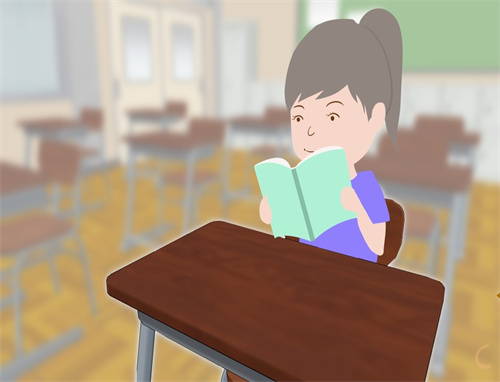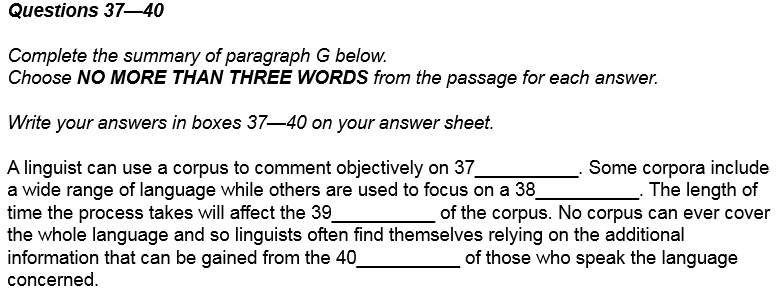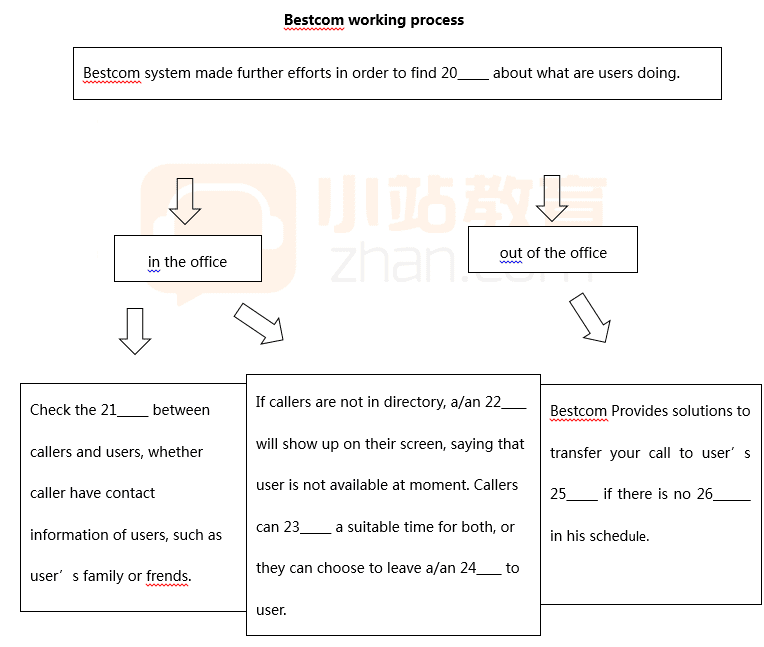托福阅读高分攻略,把握考点多做练习。今天小编给大家带来了托福阅读高分攻略,希望能够帮助到大家,下面小编就和大家分享,来欣赏一下吧。
托福阅读高分攻略
一.托福阅读高分定义
每个同学的实际情况不同,没有一个固定的模式说要考到多少分才算高,其实,只要能够达到自己出国所需的分数就是最好的了。根据我多年的授课经验来看,其实托福考试中最容易拿分的一项就是阅读部分,所以小站君今天着重给大家说下如何备考托福阅读。
二. 托福阅读高分备考攻略
1.把握核心考点
对于阅读部分,大家应该明确它的一个核心考点,那就是同义词替换。无论在任何题型的考察中都会涉及到这个概念,所以能否有一个敏感的同义词对应程度就决定你的阅读能否得到高分。说同义词不如就说是单词。其实,词汇量的大小和你的阅读分数基本上毫无疑问是成正比的。试问,如果你都能所有的文章,难道题目你做不对吗。如果你词汇量很低,基本什么都看不明白,光靠一些所谓你技巧想把阅读考的很好绝对是痴人说梦,所以对于想在阅读上拿高分的同学赶紧去背单词,无论你用什么方法,只要能把这个词记住就行。这样说可能有一点功利,但不可否认的是这是托福阅读获得高分的必备要素。又有同学问了,我应该背什么词汇书。其实市面上有各种各样的托福词汇书,在我看来其实是没有什么本质区别的,只不过每本书的编排排版略有不同,我的要求就是你要把它记下来,在考试的时候遇到一个曾经背过的单词你要能够快速反应上来这是什么意思,这就可以了。
2.语法知识
当然词汇背完了你说是不是一定可以得到很高的分数,其实还有一个要点是需要你去搞定的,就是语法。因为我们再做托福阅读的时候不可避免的要去分析和理解句子,所以一些最基本和最常考的语法是你一定要能够快速搞定的。比如非谓语动词,复合句的分析,倒装句等概念无论如何你要能够熟练的掌握。这些语法其实在我们上高中的时候应该都已经学过了,只是很久没有去用可能有些生疏,但捡起来应该不是什么难事。
3.多练习
最后就是大家在去考试之前一定要保证有充足的时间进行练习。很多同学在上完课之后就不再做任何练习了,他们把老师想的有点神,我可以告诉你,如果你不结合老师给你讲的进行大量练习,你的分数还是上不去。有句话说得好:Practice makes perfect. 只有我们多多练习,才能够找到规律,才能够熟练,在考试中我们才能够顺利发挥拿到理想的分数。
托福阅读真题原题+题目
Tulips are Old World, rather than New World, plants, with the origins of the species lying in Central Asia. They became an integral part of the gardens of the Ottoman Empire from the sixteenth century onward, and, soon after, part of European life as well. Holland, in particular, became famous for its cultivation of the flower.
A tenuous line marked the advance o f the tulip to the New World, where it was unknown in the wild. The first Dutch colonies in North America had been established in New Netherlands by the Dutch West India Company in 1624, and one individual who settled in New Amsterdam (today's Manhattan section of New York City) in 1642 described the flowers that bravely colonized the settlers' gardens. They were the same flowers seen in Dutch still-life paintings of the time: crown imperials, roses, carnations, and of course tulips. They flourished in Pennsylvania too, where in 1698 William Penn received a report of John Tateham's Great and Stately Palace, its garden full of tulips. By 1760, Boston newspapers were advertising 50 different kinds of mixed tulip roots. But the length of the journey between Europe and North America created many difficulties. Thomas Hancock, an English settler, wrote thanking his plant supplier for a gift of some tulip bulbs from England, but his letter the following year grumbled that they were all dead.
Tulips arrived in Holland, Michigan, with a later wave of early nineteenth-century Dutch immigrants who quickly colonized the plains of Michigan. Together with many other Dutch settlements, such as the one at Pella, Iowa, they established a regular demand for European plants. The demand was bravely met by a new kind of tulip entrepreneur, the traveling salesperson. One Dutchman, Hendrick van der Schoot, spent six months in 1849 traveling through the United States taking orders for tulip bulbs. While tulip bulbs were traveling from Europe to the United States to satisfy the nostalgic longings of homesick English and Dutch settlers, North American plants were traveling in the opposite direction. In England, the enthusiasm for American plants was one reason why tulips dropped out of fashion in the gardens of the rich and famous.
1. Which of the following questions does the passage mainly answer?
(A) What is the difference between an Old World and a New World plant?
(B) Why are tulips grown in many different parts of the world?
(C) How did tulips become popular in North America?
(D) Where were the first Dutch colonies in North America located?
2. The word integral in line 2 is closest in meaning to
(A) interesting
(B) fundamental
(C) ornamental
(D) overlooked
3. The passage mentions that tulips were first found in which of the following regions?
(A) Central Asia
(B) Western Europe
(C) India
(D) North America
4. The word flourished in line 11 is closest in meaning to
(A) were discovered
(B) were marketed
(C) combined
(D) thrived
5. The author mentions tulip growing in New Netherlands, Pennsylvania. and Michigan in order to
illustrate how
(A) imported tulips were considered more valuable than locally grown tulips
(B) tulips were commonly passed as gifts from one family to another
(C) tulips grew progressively more popular in North America
(D) attitudes toward tulips varied from one location to another
6. The word grumbled in line 16 is closest in meaning to
(A) denied
(B) warned
(C) complained
(D) explained
7. The passage mentions that one reason English and Dutch settlers planted tulips in their
gardens was that tulips
(A) were easy to grow
(B) had become readily available
(C) made them appear fashionable
(D) reminded them of home
8. The word they in line 20 refers to
(A) tulips
(B) plains
(C) immigrants
(D) plants
9. According to the passage , which of the following changes occurred in English gardens during
the European settlement of North America?
(A) They grew in size in order to provide enough plants to export to the New World.
(B) They contained a wider variety of tulips than ever before.
(C) They contained many new types of North American plants.
(D) They decreased in size on the estates of wealthy people.
10. The passage mentions which of the following as a problem associated with the importation of
tulips into North America?
(A) They were no longer fashionable by the time they arrived.
(B) They often failed to survive the journey.
(C) Orders often took six months or longer to fill.
(D) Settlers knew little about how to cultivate them.
PASSAGE 85 CBADC CDCCB
托福阅读高分攻略之把握考点多做练习相关文章:
★ 托福阅读高分攻略
托福阅读高分攻略之把握考点多做练习
下一篇:托福阅读3个实用定位细节技巧介绍






